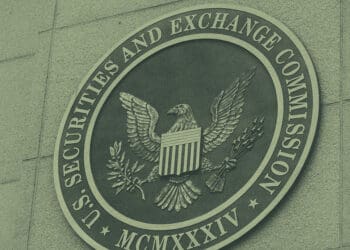Key Concerns for Private Funds in 2018
with co-authors Joshua M. Newville, Michael R. Hackett, Anthony Drenzek, William Dalsen, Alexandra V. Bargoot, Brian Hooven and Lucy Wolf
With the public equity markets at an all-time high and private equity fundraising setting new records, it might seem counterintuitive to forecast litigation and regulatory risks. The opposite is true. Disputes typically follow capital, and the steeper the growth curve, the greater the risk of litigation and regulatory scrutiny. With that backdrop, we are pleased to present our Top 10 Regulatory and Litigation Risks for Private Funds in 2018.
1. Regulatory Scrutiny Involving Cryptocurrencies and ICOs
Cryptocurrencies and other instruments based on blockchain technology – such as Initial Coin Offerings (ICOs) – are in the regulators’ sights. The SEC has asserted jurisdiction over products structured as ICOs and is pursuing violations of the anti-fraud provisions and registration violations involving ICOs and cryptocurrencies. A number of enforcement attorneys in the SEC’s new Cyber Unit are focused on ICO and cryptocurrency investigations, with more cases in the pipeline. In addition, the CFTC has declared virtual currencies to be “commodities” subject to its oversight under the Commodity Exchange Act and has brought a number of actions under the anti-fraud provisions of the CEA against industry participants. Fund managers with investments in or exposure to these areas should prepare for questions about disclosures and increasing regulatory scrutiny and spillover relating to those investments.
2. Bitcoin Bubble: Related Private Litigation
The cryptocurrency and ICO mania has been wildly profitable for some, but it also has some classic signs of a bubble. If values collapse, disputes will follow. For example, if a violation occurs in the chain of distribution, transactions involving that security may be set aside as void or voidable. Section 29(b) of the Exchange Act provides that a contract made in violation of certain registration requirements “shall be void” as to the violator, and Section 12(a)(1) of the Securities Act gives purchasers a right of rescission for violations of Section 5’s registration provisions. Private funds and others involved in ICOs or crypto-related technology should also be wary of clawback actions by a court-appointed receiver or bankruptcy trustee if a particular instrument fails or is halted. Fund managers should also be prepared for disputes with investors in light of their obligations to appropriately manage and/or disclose material risks.
3. Unicorns: Potential Disputes Spoil the Magic
Unicorns continue to be an area of high risk for private investment funds. While the IPO markets seem to be opening, rich valuations continue to constrain opportunities for liquidity and future funding rounds. Looking ahead, exits or funding rounds that are below recent valuations could lead to disputes and SEC scrutiny. Meanwhile, recent experience – most prominently with Theranos – suggests that the failure of one or more unicorns is likely to attract both regulatory scrutiny and private litigation given the magnitude of investor losses.
4. Privacy and Data Security Risks Continue to Increase
After years of warnings by the SEC, this could be the year that one or more private fund advisers suffer a public cybersecurity breach. Given that highly sophisticated entities – including those that specialize in data protection – have fallen prey to cyberattacks, private fund advisers are in no better position to deter these very real threats. It may be difficult or even impossible to thwart an attack, but private fund advisers must have in place robust and proactive policies and procedures to limit damage should an attack occur. Given all the warnings and events in the market, the absence of a cybersecurity policy that includes emergency remedial measures may lead to regulatory scrutiny and possible enforcement action.
5. Big Data: Big Risks Involving Alternative Data Vendors
Fund managers are increasingly using alternative data sources or “big data” to inform investment decisions, including geolocation data, web scraping, satellite data and aggregate credit card transactions. Use of large data sets can potentially lead to liability under a host of U.S. privacy and data security laws. Securities regulators may focus on the use of big data sets, particularly where they suspect potential material nonpublic information is being hacked, used or shared. Was access to information obtained legitimately? Was there any deception or misrepresentation in the collection of the data? If so, liability could arise under the anti-fraud provisions. Data vendors may be more focused on technological advances and may have high levels of “acceptable” risk tolerance. Fund managers may risk potential liability under agency theories, in addition to regulatory scrutiny and adverse publicity.
6. Litigation Funding: Fueling Private Fund Disputes
Historically, limited partners have shied away from initiating litigation – in part because their primary objective is to maximize their investment and litigation is viewed as a certain cost with an uncertain return. This is especially true for government pension plans. In addition, sponsors have an asymmetric advantage in that they often can draw on the fund to cover legal expenses, whereas limited partners must cover their own expenses. Enter litigation funders, whose business strategy is to invest in claims by covering the expenses of litigation in exchange for a share in the recovery. We expect to see more LP-driven litigation backed by litigation funding, as well as the revelation that litigation funders have already been active in this space behind the scenes.
7. Fund Performance Marketing: A Continuing Area of Examination Focus
Sponsors of private investment funds are acutely aware of the importance of their performance presentations when marketing their funds to existing and potential investors. While the SEC has always seen performance marketing as an area of regulatory focus, recent amendments to the Investment Advisers Act of 1940, the release of a risk alert from the agency’s National Examination Program, and recent enforcement activity in this area reflect a recommitted emphasis to the issues surrounding performance marketing. We expect this trend to continue in 2018 and beyond. As the private fund industry becomes ever more competitive and marketing pressures intensify, sponsors must ensure that any performance presentations comport with the applicable regulatory compliance requirements.
8. Regulatory and LP Focus on the Use of Subscription Credit Facilities
Sponsors of private investment funds have continually sought to optimize the capital structures of their funds with a goal of enhancing returns for their investors. While mechanisms such as subscription credit lines allow sponsors to swiftly and smoothly execute portfolio investment opportunities, fund sponsors should re-evaluate disclosures to investors of credit line utilization and potential effects on fund performance calculations. As both the SEC and limited partners further evaluate the use of fund credit facilities, sponsors should be prepared to explain the commensurate benefits and potential conflicts involved.
9. Private Credit Industry Likely to See Rise in Disputes
The market for private credit lending (sometimes called alternative finance or private capital) continues to boom, with some experts estimating that it will exceed $1 trillion by 2020. The influx of capital into the private credit industry is altering the landscape for deal types and deal terms. Rising competition, intense deal activity and the reach for yield have led to more complicated capital structures. This complexity coupled with higher interest rates are signs of a maturing credit cycle – which in turn signals an increased risk of defaults. End-of-cycle defaults often lead to contentious workouts. Given that disputes tend to follow market trends, the continued growth of the private credit market today could lead to disputes tomorrow.
10. Portfolio Companies Continue to be a Source of Litigation Risk
There are seemingly countless ways that ownership and sale of a portfolio company can expose sponsors to litigation. As we have previously discussed, there is a growing trend by plaintiffs’ lawyers to name sponsors and their board-designees as defendants in traditional portfolio company litigation – it’s never too early to perform a robust review of insurance policies and indemnity rights and obligations. Sponsors (and their principals) also are common targets when a portfolio company fails post-sale and a creditors’ committee comes knocking to pursue recoveries. Finally, we have seen a steady uptick in something that once was viewed as taboo in the industry: sponsors suing other sponsors related to sales of portfolio companies. This trend is likely to continue.



 Timothy Mungovan is a Partner at Proskauer Rose LLP. Tim’s practice is focused on solving complex business disputes in a variety of areas including securities, investment management, corporate governance, fiduciary obligations, capital markets and financial services. A significant portion of Tim’s practice involves disputes and risk management for private investment funds (private equity, venture capital and hedge funds) and private credit vehicles. Tim serves as co-chair of the firm’s Litigation Department, co-head of Proskauer’s Commercial Litigation Practice Group and co-head of the
Timothy Mungovan is a Partner at Proskauer Rose LLP. Tim’s practice is focused on solving complex business disputes in a variety of areas including securities, investment management, corporate governance, fiduciary obligations, capital markets and financial services. A significant portion of Tim’s practice involves disputes and risk management for private investment funds (private equity, venture capital and hedge funds) and private credit vehicles. Tim serves as co-chair of the firm’s Litigation Department, co-head of Proskauer’s Commercial Litigation Practice Group and co-head of the 





